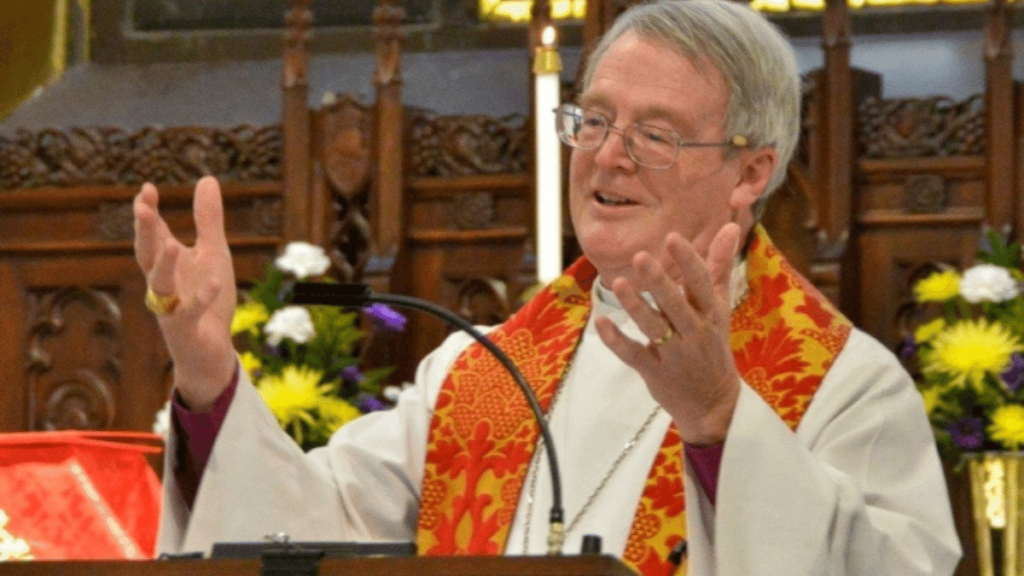
In hoping to be helpful to the Grace community by a more extensive return for the balance of the year, I want to share some reflections on the significance of this time.
With much vulnerability and courage, Amy has shared with us her struggle in recent times. We may not always see what it costs an individual to sustain the energy for ministry in public life. Ordained ministry is by nature a public thing. It plays out in the public arena; and people called to such work accept this. We develop support and practices for our inner lives which help us to be available to others. Yet, sometimes, the inner load can become overwhelming, and the energy required for our own personal ability to stand firm and be present can be sapped by external factors. You might hear of clergy “acting out” in inappropriate ways – all evidence of reaching the place where inner tensions can no longer be suppressed from the public persona that ministry requires.
Sabbaticals, short term disability leave, and even long-term disability leave can aid in a person’s restoration. The disability leave arrangements are focused on healing and restoring a person in ministry. Applying for short term and long-term disability saves the church from the financial burden of providing additional clergy to make up for the temporary loss of their clergy’s services as they heal.
Clergy can also experience what we may call a mid-life ministry issue – a vocational mid-life crisis. This certainly happened to me during my time as Rector of St Barnabas’ in Eagle Rock. It is normal for us to ask ourselves – what are we doing? We address our effectiveness, the questions of ministry’s meaning and purpose, and we may even wonder whether God is still supporting us! In other words, we pause and begin to wonder. And we need to come away a while, just as Jesus often did in his own ministry especially at key moments.
I believe and can testify within my own experience that God works through challenges as points of potential growth for all of us. And I am convinced that God will deepen our community as an agent reflecting God’s restorative love in a world desperate for healing and change. I am hearing tales of faith awakening breakouts in England and Europe; and I believe that it is such a time for us.
I have always been fascinated by the way our lives in the Spirit are invited to mirror the life of Jesus. This is true to the pattern of death and resurrection; and it is also seen in the unique period reflected in these ten days – from Ascension to the Day of Pentecost. Jesus’s physical presence was removed from the disciples at the Ascension, and they were told to wait patiently for the coming of the Spirit. They had no idea what that meant at the time. Nor did they know that their waiting time would be ten days. No physical Jesus and no spiritual presence of Jesus – just the memories, the teaching in their heads, the experience of having walked with him, the miracles of resurrection appearances were all they had to hold them in place. They trusted the promise.
And it is clear, the rush of wind and the appearance of fiery flames above each other’s head on Pentecost totally took them by surprise. They were shocked to be feel empowered to go out onto the streets and find themselves speaking languages they did not understand but which conveyed the power of the Gospel of Jesus Christ to those who listened. Their patience and their trust in God’s promise proved true; it was all they needed, and it is the same for us in life’s circumstances.
The apostle Paul once wrote to the people of Corinth to examine themselves as to their faith in God. He also faced countless ups and downs in his public ministry – sometimes being blocked by God’s own Spirit from his own travels. Near the end of his life, he encouraged one of his young leaders, Timothy, to stir up the Spirit that came to him “by the laying on of my hands”. And he added that in his life he had learned to “know the One in whom I have put my trust, and I am sure that He is able to guard until that day what I have entrusted to Him”. (2 Tim 1:12)
We are encouraged to move forward in that same confidence. Ascension Day to the Day of Pentecost – it could not be a more appropriate time!
– Bishop Alan

Recent Comments